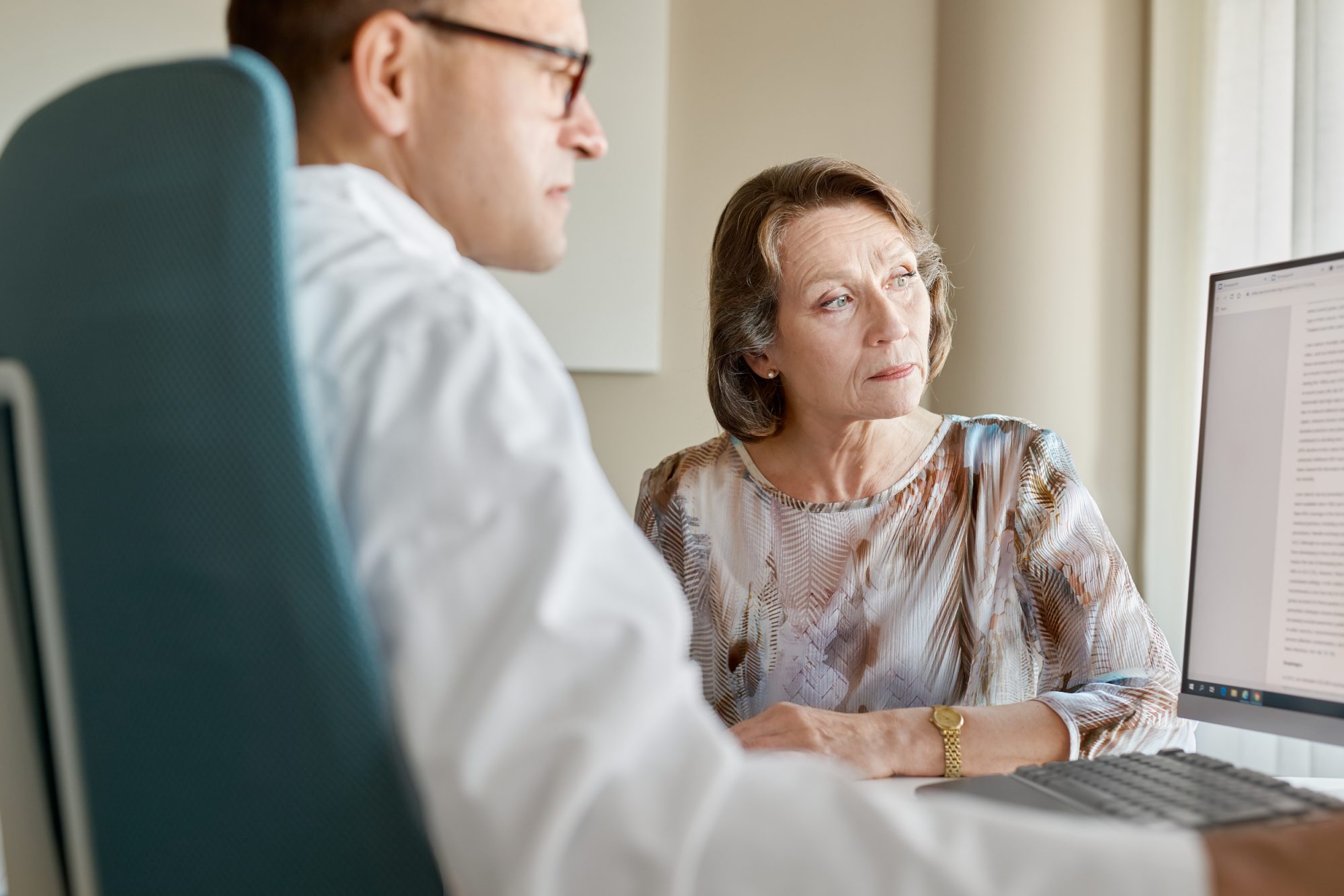Confusion and fear of death are present when a cancer diagnosis is made
16.12.2021 Categories: Articles
Associate Professor Päivi Hietanen, who works at Docrates Cancer Center, says that the patients’ most common thoughts when they receive a cancer diagnosis are confusion and worry about the future. She emphasises the patients’ individual needs and encourages them not to hesitate to seek help if it is available.
“Receiving a cancer diagnosis is a very confusing experience. In most cases, the first question is about if you can be cured. Fear of death is intense in the beginning; it is a natural human reaction,” says Hietanen, who is an oncologist and a psychotherapist.
More relevant questions slowly pop into the mind after a while.
“Further questions gradually become relevant. The questions are often about very concrete things, such as what the patient can do during the treatment and how the cancer treatment will affect their daily life,” says Hietanen.
“At the first appointment, the physician should make it clear what kind of support network the patient has and, if necessary, provide the patient with the contact information of support organisations and information about peer support groups. When a person is diagnosed with cancer and given a referral for treatment, you should always be able to ensure that they are not left alone with their disease. It is also important to look after the mental well-being of the patient in later appointments,” says Hietanen.
Patients need a safe atmosphere
According to Hietanen, the most important thing at the beginning of the disease is that the patient is guaranteed a safe atmosphere where people are genuinely present for the patient.
“The least you can do is to tell the patient about the forthcoming treatment, when something will happen and why, to give them contact information if they need additional help and to be present and within reach of the patient. It also instils hope that the patient knows that they are being taken good care of.”
Päivi Hietanen also says that there is no ready-made pattern for interacting with a patient and, instead, all professionals working with patients should consider the patient as an individual; what is their age and what are their life situation and general personality like.
Psychological support has developed significantly in recent decades
Hietanen has been working with cancers for 40 years and, according to her, interactive skills and considering people as individuals should now be part of a physician’s professional skills. In general, the psychological side of patients is being taken into consideration more widely today, thanks to the transformation of societal climate and values.
“The education of Finnish physicians has involved interactive skills for about 30 years. Nowadays, situations that involve interaction are very diverse, and how to give bad news to a patient is already being practised in university studies. These things are being taken into consideration better nowadays and the situation has become more positive. However, the challenge remains that milder anxiety and depression can easily remain undetected in a treatment setting even if the patient needs mental support,” says Hietanen.
When there is time for the patient and they are explained in detail what the disease is about and how it is treated, this already helps alleviate the situation. It also often eliminates the need for separate therapy.
When should you seek help?
Some patients or their family members need crisis therapy in any case and benefit from having the chance to make sense of their life situation with a professional.
“Anxiety and mood disorders are completely normal when a person loses something significant in their life. These feelings are the strongest when the cancer diagnosis is made and we now know that, after about three months, these symptoms become somewhat easier and, after a year, significantly easier. Initially, the patient’s treatment may need to include professionals who focus on the patient’s mental recovery and know how to help the patient make sense of their life situation.
Not everyone needs therapy, but it is important that the health care personnel have the ability to sense things and ask about the patient’s resources. According to Hietanen, the most important thing is that care is available to those who need it.
“Patient and cancer organisations provide peer support and information, for instance. There are European patient organisations for different diagnoses that are also active in Finland. In addition to Docrates Cancer Center, all university hospitals that provide cancer treatment services also offer mental support services,” she says.
More information about the psychotherapy and other well-being services available at Docrates Cancer Center is available from your nurse or attending physician, or you can call our nurses on +358 10 773 2000. Psychotherapy and mental health support appointments can also be booked, even if you do not have an existing treatment relationship with Docrates. At Docrates Cancer Center, every patient has their own attending physician and care team throughout the treatment path. We are here for you.












